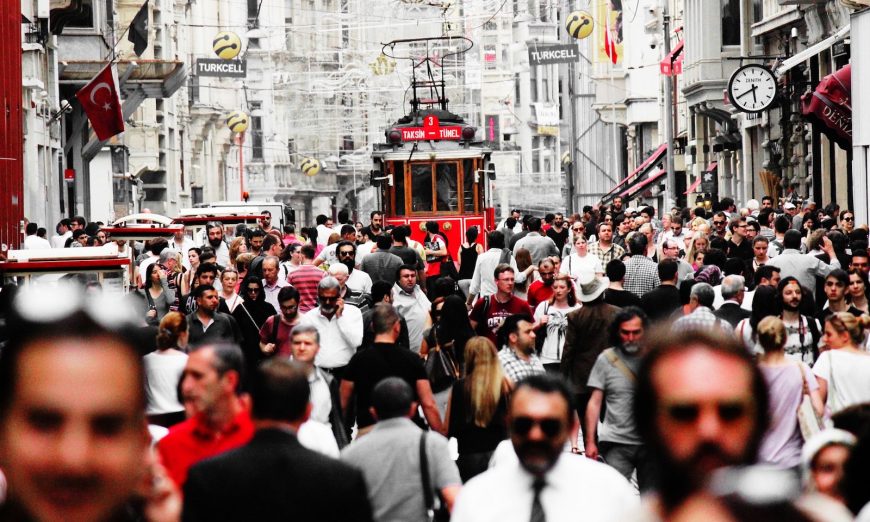by Graham Watson*
Turkey’s military is stirring against democratic forces for the fourth time since 1960 — in a move which could spell disaster for EU relations, not to mention the country’s economy and its international standing.
Barely 10 years after mounting a coup against Necmettin Erbakan’s government, the generals have spoken out again, this time against Abdullah Gül’s nomination as president of the republic.
Last Friday’s statement claims the army is defending Turkey’s secular roots by protesting his candidacy. Yet by claiming they “are a side in this debate” and “will display their position and attitudes when it becomes necessary” –presumably by any means necessary — they are violating the strict separation of powers that Turkey, as a democratic state, officially adheres to.
As far as the EU is concerned what happens next will be a test of Turkey’s democratic maturity. The German presidency, quite rightly, has rallied around Gül’s candidacy and urged that no external pressure should be put on the Constitutional Court when it decides on the legality of the election in advance of the second round of voting on Wednesday. Europe’s leaders have already made clear that they consider the current foreign minister a safe pair of hands to guide Turkey into the next round of reforms and dig the EU accession process out of the hole it is currently in. Whether his wife wears a headscarf or not, whether he is a practicing Muslim or not, should be irrelevant to his nomination.
Furthermore there is nothing to suggest that Mr. Gül is not a committed democrat. The fact that the Justice and Development Party (AK Party) has its roots in Islamic values — much as the Christian Democrats, who are currently the biggest political force in the European Parliament, have their roots in Christian values — does not imply it is a threat to Turkey’s secular constitution. Rather a moderate Islamic force could act as a stabilizing influence in politics across the Middle East, providing a model of reconciliation between religious beliefs and democratic principles that many Muslim majority countries currently lack. Suppressing the will of the people will simply force the Islamic agenda underground and risk inflaming tensions, rather than calming them.
Indeed it could be argued that Turkey’s brand of secularism is amongst the most extreme and inflexible in the world. Modeled on the French Third Republic, it preaches a brand of laïcité which has evolved little over the past 80 years and has problems with recognizing certain religious and minority rights. Easing up on headscarf bans in universities, allowing Koran-reading competitions on national days, or any of the other “unmentionable” ideas Gül is said to have ahand in, does not herald a fundamentalist take over but rather goes hand-in-handwith the enhanced freedom of expression and religious liberty that Turkey agreed to promote when it became a candidate for EU accession.
Experience in Europe shows that, while the separation of religion and state is scrupulously observed, that prevents no one from adhering to the religion oftheir choice — including in public buildings like schools and universities, where students are allowed to abide by their religious or cultural dress codes and often given the choice of kosher, halal or vegetarian meals.
Likewise many European heads of state are practicing Christians, notably British Prime Minister Tony Blair and German Chancellor Angela Merkel, who have made no secret of their beliefs. Indeed my own mother — who is a pious Christian — followed the Paulian tradition by covering her head when sheentered a church for many years, which is by no means unusual. Gül should be judged by the same standard as other leaders — not made to choose between secularism and his personal faith. It is clear from the million-man march for secularism that took place in İstanbul last week, however, that the prospect of a joint Gül/Erdoğan premiership has split Turkish public opinion into two distinct camps. What both sides need to recognize, however, is that the army’s behavior threatens to undermine Turkey’s prosperity, security and stability.
Far more worrying than moderate Islam, for the average Turkish citizen, is the effect of the cancellation of elections, or the specter of another coup could have on Turkey’s rapidly-expanding economy. Financial markets had reached record highs before last week’s threat of intervention caused the İstanbul Stock Exchange (İMKB) 100 Index to fall 8 percent in one day. Further uncertainty about Turkey’s democratic status could well see stock market asset values freefall.
A healthy, stable democratic system is necessary for investors, as it is for Turkey’s international standing. Allowing the army to over step the line will set back a decade’s worth of progress and impede all prospects of a settlement with the EU. For now perhaps only a reappraisal of the will of the people, through early parliamentary elections, can provide the indicator that Turkey –and the rest of the world — needs of the resilience of its democratic institutions.
*Graham Watson is the chairman of Liberal Group in the European Parliament
02.05.2007 http://www.todayszaman.com/tz-web/detaylar.do?load=detay&link=109985

